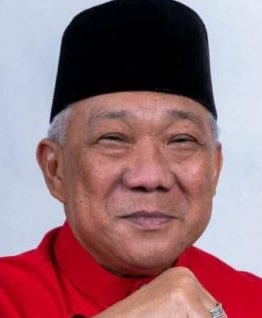ADVERTISE HERE

Bung Moktar
KOTA KINABALU (May 18): The proposal to change the title of Sabah Chief Minister to Premier, as done by Sarawak, must be examined from the perspective of the Constitution and the Malaysia Agreement 1963 (MA63).
Umno Sabah chief Datuk Seri Bung Moktar Radin opined that changing the Chief Minister’s title to Premier or Prime Minister will not alter the state’s autonomy enshrined in the Malaysia Agreement 1963.
Bung Moktar in a statement on Saturday pointed out, “In Part III Article 5 of the Malaysia Agreement 1963, jointly agreed upon by representatives from Sabah, it is stated: “Chief Minister” and “Mentri Besar” both mean the president, by whatever style known, of the Executive Council in a State (and in particular “Chief Minister” includes the Prime Minister in Singapore).
This provision, he said, has been included in Article 160 of the Federal Constitution, which reads: “Ketua Menteri” dan “Menteri Besar” both mean the president, by whatever style known, of the Executive Council in a State.
“I would like to remind the GRS government about the implications on the compliance process of MA63 if the State Government arbitrarily amends the constitution while Sabah is negotiating the interpretation of Article 112D concerning the 40 per cent special allocation,” said the Kinabatangan Member of Parliament.
Bung Moktar also stressed that the Federal and State Governments must uphold and respect the MA63, and the Federal Constitution at all times.
“If we seek recognition as equal partners, it would be better to request the reinstatement of the definition of ‘Governor’ that was omitted by Act A354, Section 41, in 1976.
The original definition is as follows: “Governor” means the Head of State, by whatever style known, in a State not having a Ruler (and in particular includes the Yang di-Pertua Negara in Sabah, and the Yang di-Pertuan Negara in Singapore).
“We do not need to emulate what Sarawak is doing because it reflects a leadership in Sabah devoid of ideas and identity and that it is weak in identifying priorities for the development of this state and ensuring that Sabah’s rights in the agreements are preserved,” he opined.









 English (US) ·
English (US) ·